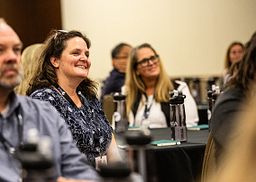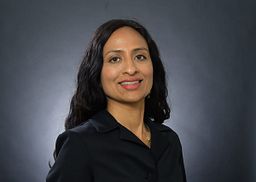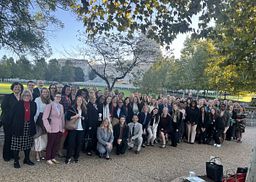Preparing for the 2025 PAEA Education Forum Call for Proposals: Introducing New Areas of Focus and Presentation Formats
The Call for Proposals for the 2025 Education Forum will open January 29, 2025 with new areas of focus (tracks) and formats. All members are encouraged to submit proposals. Now’s the time to start thinking about what hot topics need to be discussed. We invite all engaging and thought-provoking proposal topics impacting PA education. The new areas of focus are detailed below.
New Areas of Focus
Program Assessment
Focused on the theoretical underpinnings and practical applications of competency-based education, including what it is, how to implement it, common pitfalls, how to assess competency, and how to meet accreditation standards. Sessions may explore topics such as current competency-based medical education frameworks in PA and physician education, entrustable professional activities, meeting accreditation standards, and the future of competency-based medical education.
Student Success
Focused on the policies, practices, environments, and strategies that lead to student success and foster high-quality learning by preparing students to serve diverse patient populations. Sessions may explore topics such as student admissions and recruitment, teaching students how to learn and study, guiding students through transitions to a professional program, best practices for promoting professional behaviors, and inclusion and diversity during the program and beyond, including developing students into leaders.
Teaching in the 21st Century
Focused on learner-centered teaching using experiences and instructional methodologies that leverage technology to enhance learning. Sessions may explore topics such as using the principles of backward design, active learning strategies, increasing learner engagement, navigating complex challenges, innovative teaching ideas that use technologies like simulation and ultrasound, and teaching models such as blended and online learning. Sessions may also touch on best practices for promoting a culture of continuous quality improvement in didactic learning experiences, addressing contemporary issues and trends in education healthcare, and how programs prepare students to function in evolving healthcare delivery systems to improve patient health.
Clinical Education
Focused on designing meaningful clinical learning experiences. Sessions may explore topics such as designing longitudinal and integrated rotations, assessing clinical performance, tracking procedures, and preceptor recruitment and retention. Sessions may also explore best practices for promoting a culture of continuous quality improvement in clinical rotation experiences.
Faculty Success
Focused on the faculty development, leadership capabilities, and organizational infrastructure needed for faculty and staff success. Sessions may explore topics such as fairness in faculty and staff recruitment and retention, creating opportunities for promotion and tenure, organizational skills, advocating for resources, and the qualities of successful leaders.
New Education Session Formats
Critical Conversations (60-minute presentation)
This is a new approach to panels. Think of a talk show format with a strong moderator who is a good facilitator. This interactive panel should plan to provide varying views and opinions on a particular issue or topic relevant to PA education facilitated by a moderator. Panelists are individuals who have distinguished themselves in the topic area of the presentation through scholarship and expertise. The moderator should plan to facilitate a formal Q&A with the audience and panelists for a minimum of 10 minutes.
This presentation format requires three to four panelists and one panel moderator.
Facilitated Discussion (60-minute presentation)
The facilitated discussion presentation starts like a traditional presentation, with the presenter(s) at the front of the meeting room presenting an idea. After fifteen minutes, the focus shifts from the presenter(s) to the attendees. For the remainder of the presentation, the presenter(s) become facilitators inviting comments, insights, and questions from those around the room. Facilitated discussions allow attendees to drive their own learning and share experiences with others related to topics relevant to PA education, which also assists with networking.
This presentation format requires one to four presenters. (Maximum allowed Facilitated Discussion speakers updated 2/18/25)
Spotlight Presentation (25-minute or 60-minute presentation)
The 25-minute presentation or express learning, is a short, carefully prepared presentation in a lecture format (best delivered by a single presenter) on a specific topic, particular educational findings, or observed experiences where 10 to 15 minutes of the presentation is lecture-based followed by five to 10 minutes of audience Q&A.
In contrast, the 60-minute presentation is a format where the presenter(s) provides information in a lecture format on a specific topic, particular educational findings, or observed experiences. The goal is to share, propose, or report findings that may be of interest to PA educators. Of the 60-minute presentation, a minimum of 10 minutes is reserved for attendee Q&A.
This presentation format requires one to two presenters.
Debate (60-minute presentation)
The debate presentation includes one moderator and two presenters. Both presenters have an interactive and lively discussion in which they present opposing views about the topic discussed. PAEA is looking for specific debate topics relevant to PA education; these topics will be communicated during the call for proposals process. Both presenters will submit one proposal together, and identify a moderator who will facilitate the debate presentation.
This presentation format requires two debate speakers and one debate moderator.
Makerspace Workshop (90-minute presentation)
The makerspace workshop presentation is a format where a presenter(s) facilitates small group interactions focusing on educational techniques, approaches, skills, creativity, and creation. With the presenter(s) taking a facilitative rather than instructional role, attendees will walk away having developed something they can take back to their program.
This presentation format requires one to five facilitators.
Research Briefs and Posters
Research is one of the major pillars of PAEA’s mission. As such, we promote rigorous, high-quality research within PA education and the profession. Original research of any kind related to education or workforce as well as educational innovations are welcome.
This presentation format requires one to two speakers.



